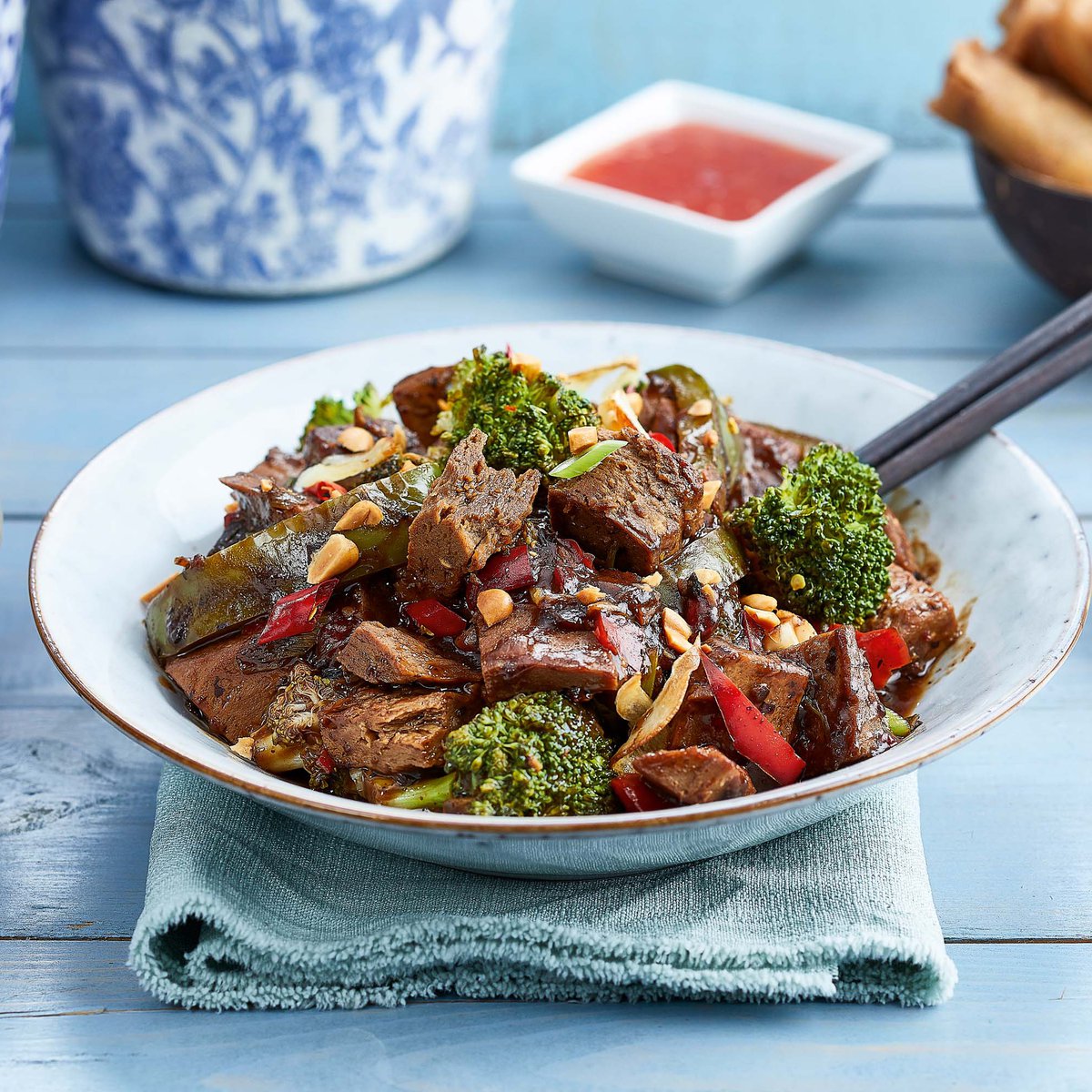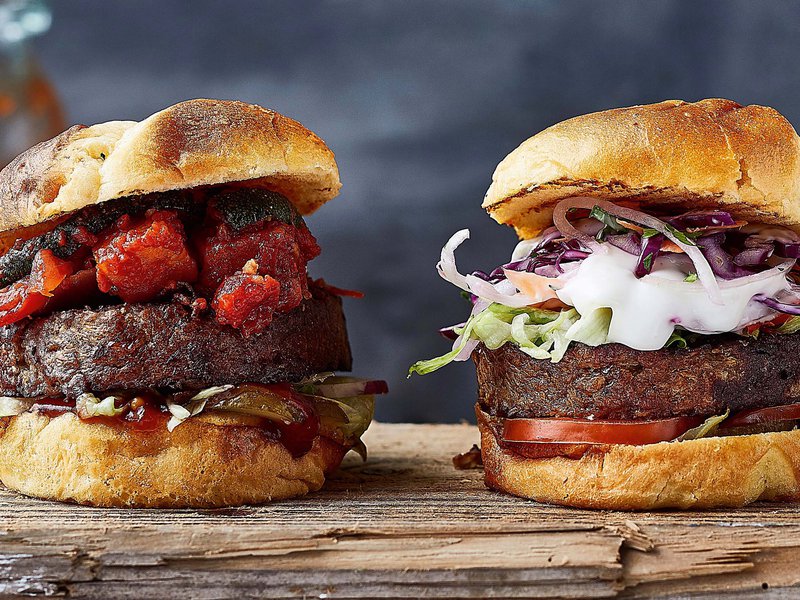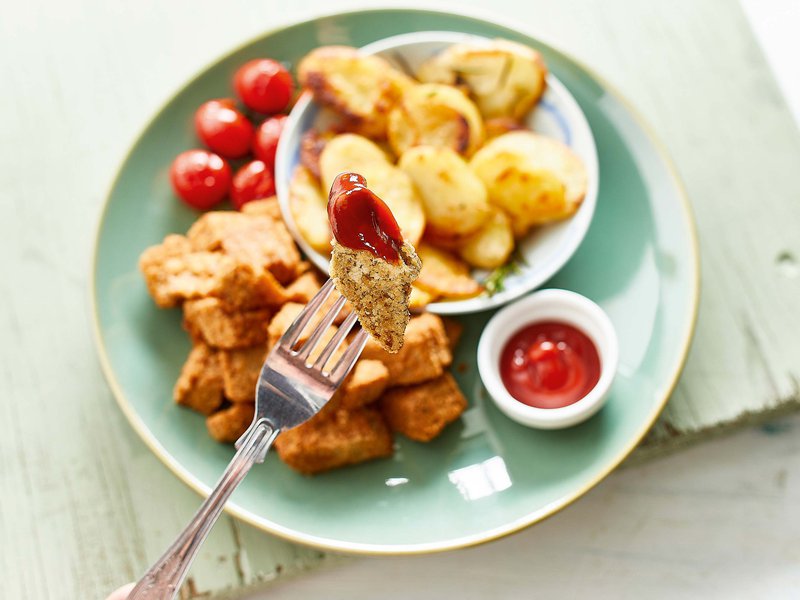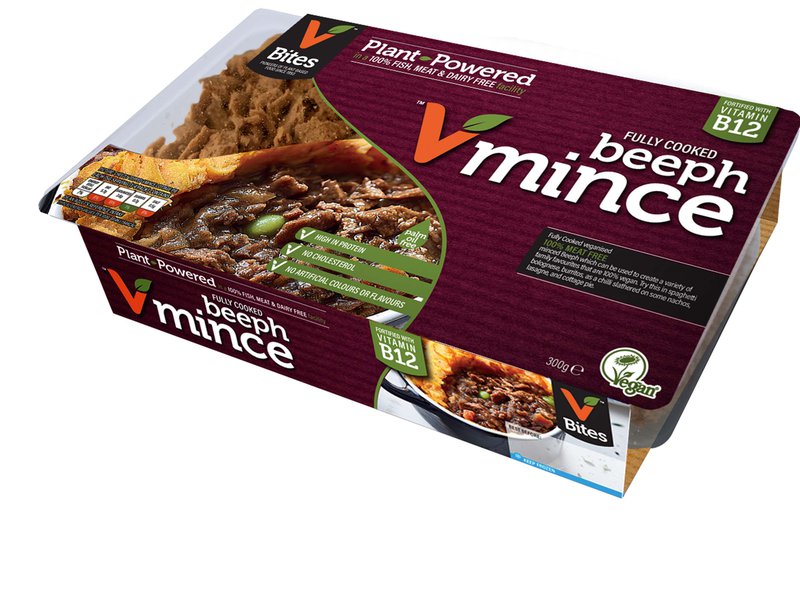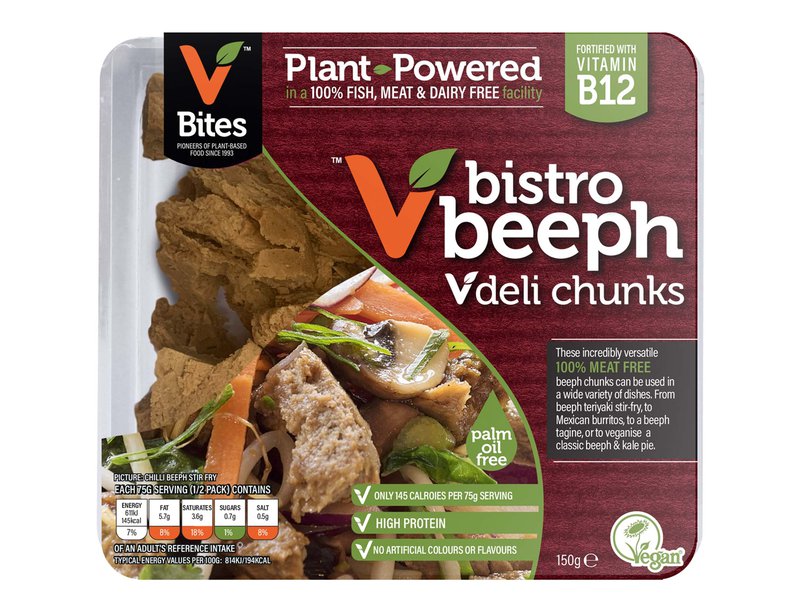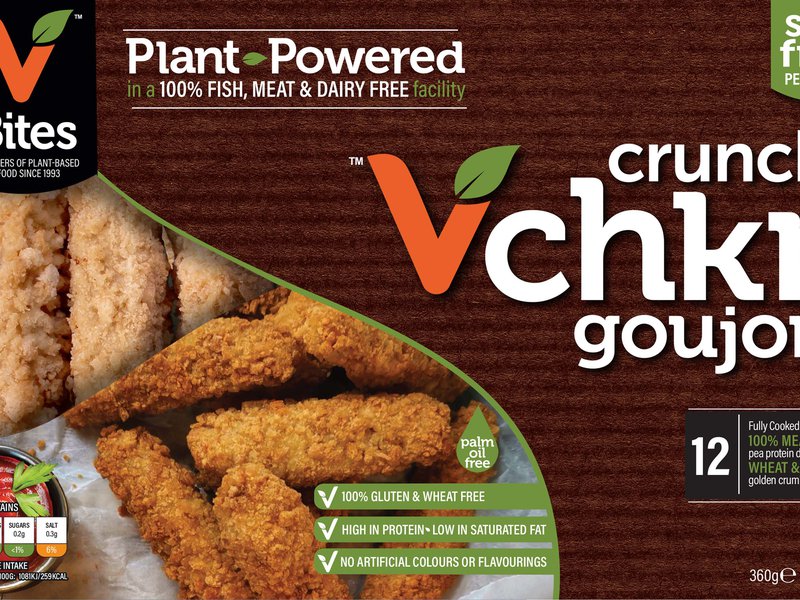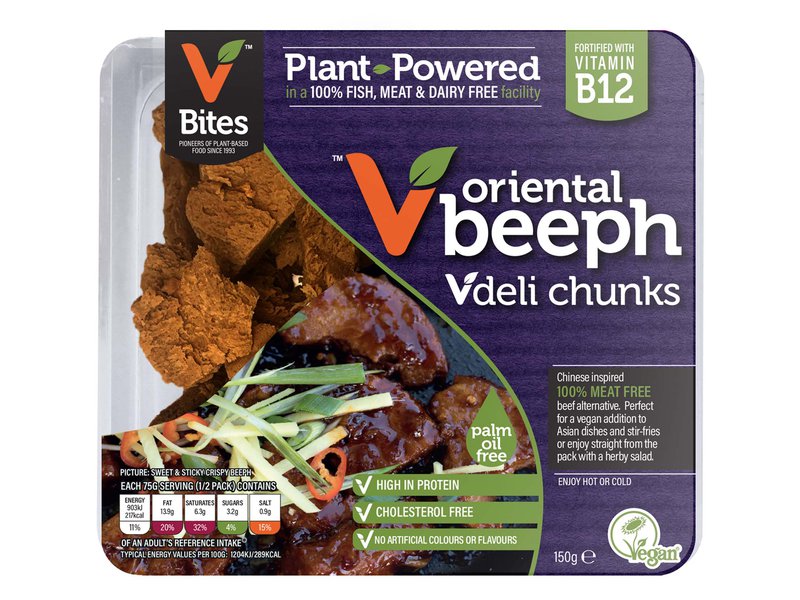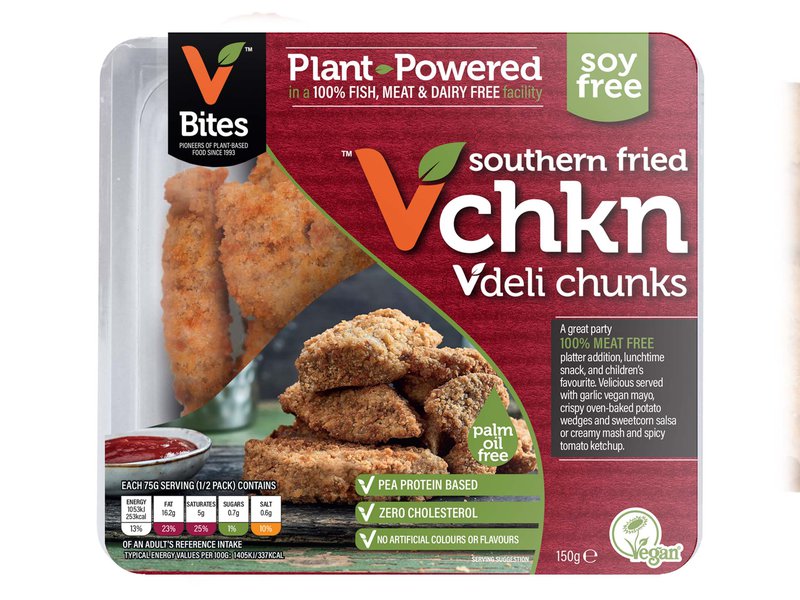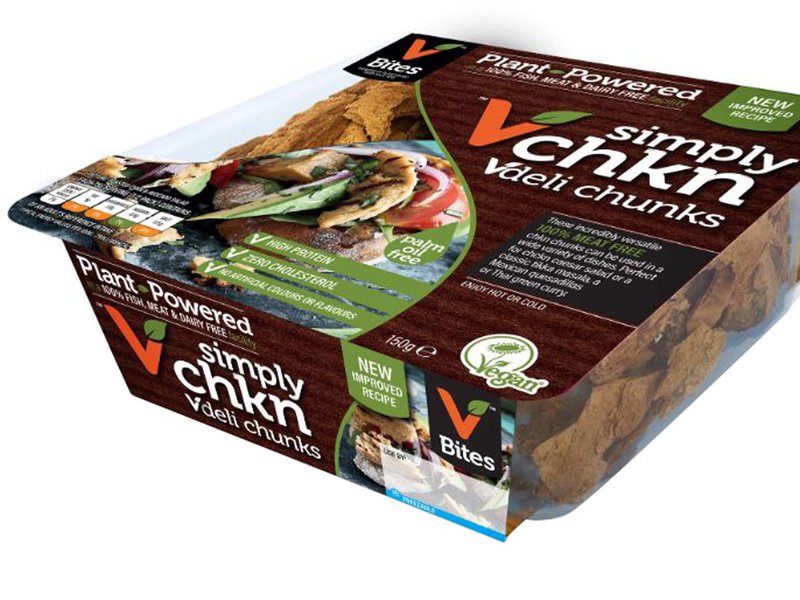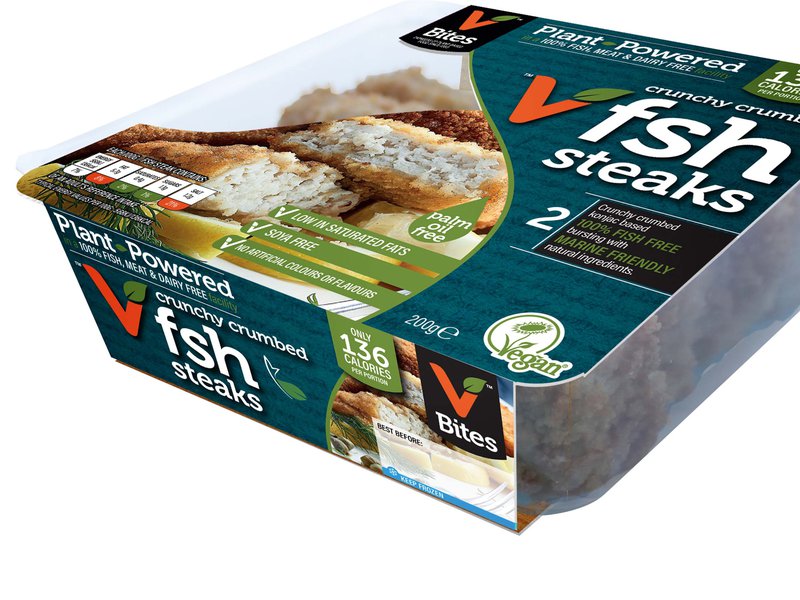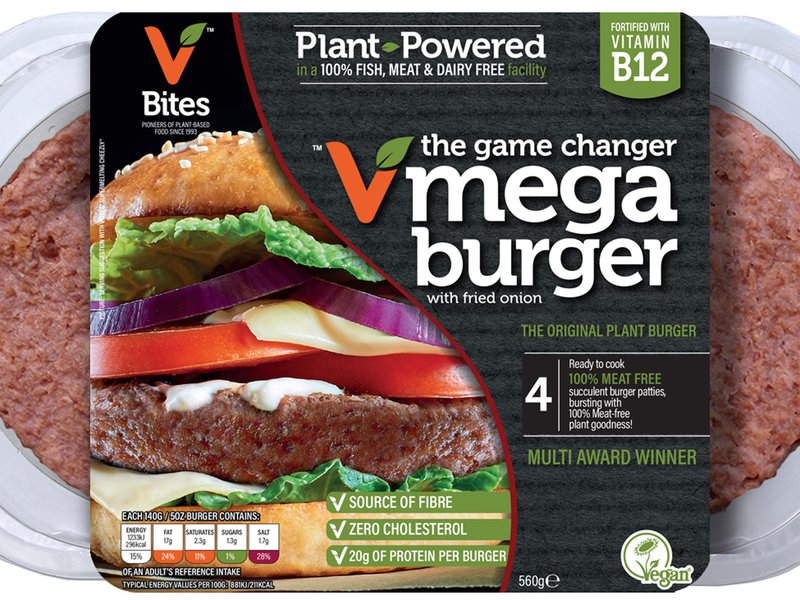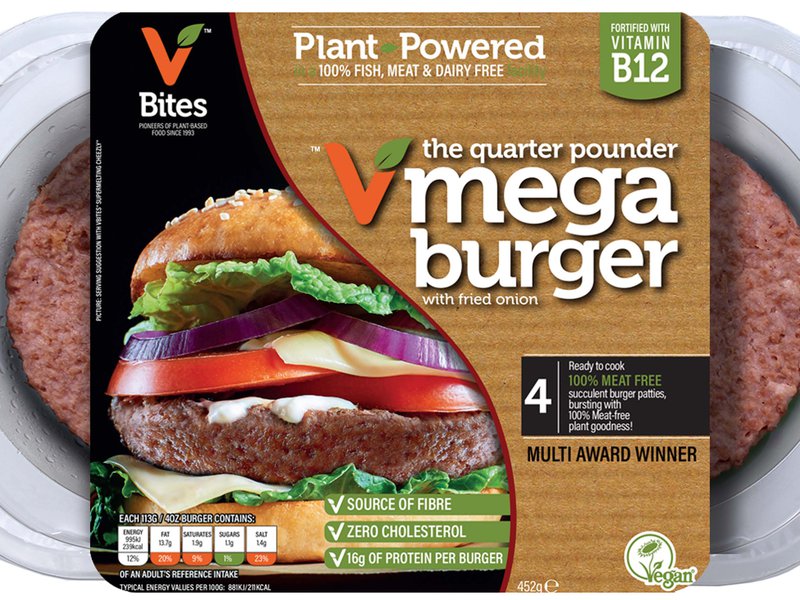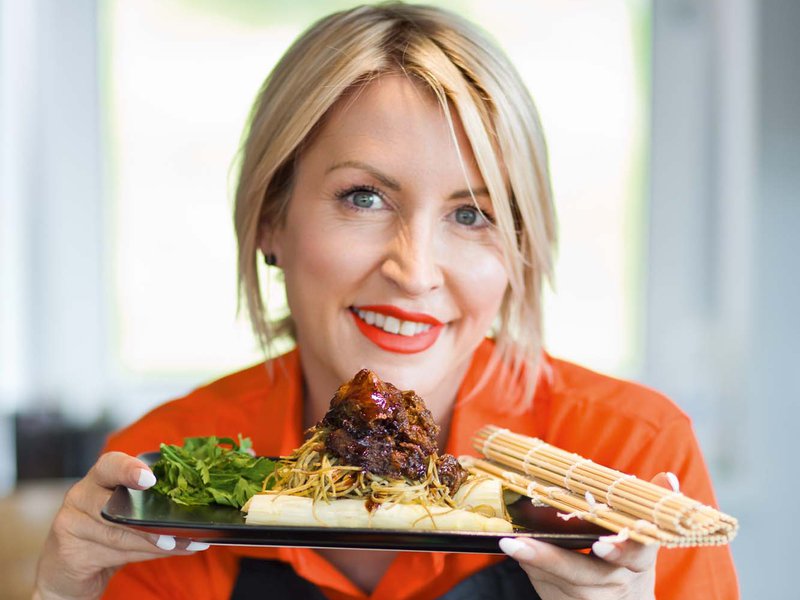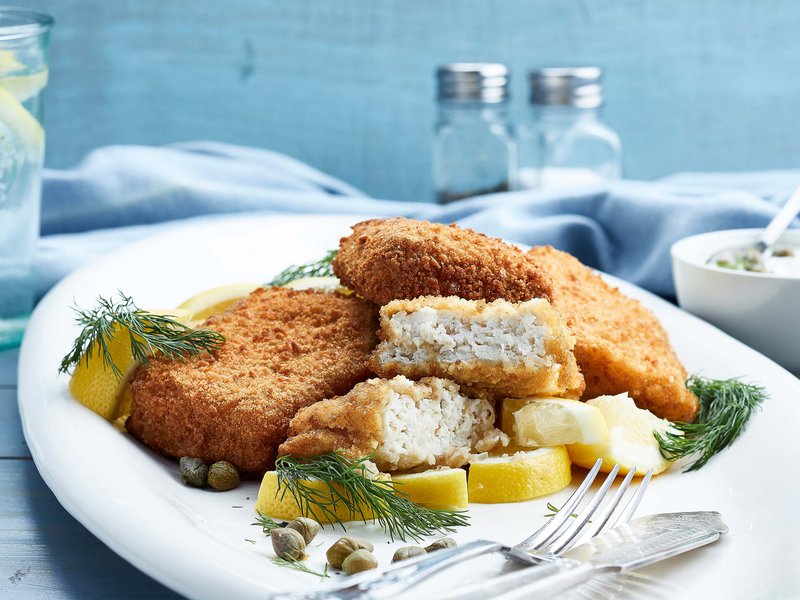Heather Mills, the renowned founder and owner of award-winning vegan enterprise VBites, has been developing meat, fish and dairy substitutes for 26 years. Here we speak to her about her fascinating story and innovative products – some of which are now available at Spinneys
Going vegan
Going vegan
Some people choose to be vegan because they care about animal welfare and/or the environment. Others do it for health reasons. You went vegan after a road traffic accident left you with an amputated leg – tell us more about this incident.
In 1993 I returned to London after having worked on the frontlines of the war in what was Yugoslavia. I was crossing the street and a police motorcycle hit me, chopped off the lower part of my leg, crushed my pelvis and punctured my lung. I ended up in hospital and my family was told four times in 48 hours that I would die.
Obviously, I pulled through, but I stayed in hospital for five months. The doctors had to keep amputating more and more of my leg because it was infected. The antibiotics and other medication given to me wouldn’t work; I just wasn’t healing.
Then, a girlfriend of mine visited me at the hospital and said: “We’ve got to get you out of here and you have to go vegan.”
I was 25 years old, meant to be in my prime and willing to try anything, but I did wonder, ‘what is this vegan thing?’
What happened next?
She took me off to America to the Hippocrates Health Institute in West Palm Beach and I was filled with wheat grass, raw foods and all sorts of juices. My leg healed in two weeks and I thought, wow!
How did you end up starting VBites?
After being in America, I remained vegan and wrote a recipe book to try and explain the raw vegan diet. But, after about two years and despite feeling 100 per cent great again healthwise, I was fed up – it was just too cold in England for me to only eat raw food. When I socialised, there wasn’t much variety besides beans, salads, and plates of vegetables at restaurants – it was boring and I missed pizza and those kinds of things.
So, I studied food science, started to develop vegan alternate meats and cheese and I approached companies to show them how I could replicate their products using plant-based ingredients. I’ve always thought that if we are going to try and get people to be healthier, we need to replace like for like in their diets.
In the early 2000s I came close to launching a range for McDonalds – I had replicated everything on their menu from vegan chicken nuggets to burgers and shakes, but it was too ahead of their time.
VBites was officially born in 2007 and in 2008 I opened the first VBites café where we served everything from chorizo and sausage rolls to vegan duck as well as a range of desserts and cakes using ingredients such as chickpea water instead of eggs.
Today, VBites is one of the largest 100 per cent plant-based companies around. Tell us about your facilities and practices.
We offer the widest range of vegan food available, and currently have 140 products – all of which are developed and produced in the UK. At our roots, we are a vegan company. We care about the planet, our health and the welfare of animals, and that pervades everything we do, from the way we support small businesses to the choice of ingredients in our products.
What are some of the main ingredients that you use in your products?
We use good-quality soy made from edamame beans – not the highly processed type of soy which you find in many products like alternative milks. Soy has essential amino acids and can be good for you if produced properly; the Japanese live off soy and have some of the healthiest, longest lives. We also use ingredients such as pea, fava bean and oat proteins, konjac and chickpeas. Our products can contain vitamin B12, calcium, iodine and we’re introducing more and more microalgae-based items, which are rich in protein and provide omega-3.
Can you explain more about microalgae-based products and omega-3?
Most people think omega-3 oil comes from fish. But the truth is it comes from the algae that fish eat. Also, getting omega-3 from fish is no longer sustainable. Overfishing and fish farming have a negative impact on the environment, plus research has shown that the majority of farmed-fish contains industrial toxins, pollutants and no omega-3 whatsoever. So, there really is no point in taking a fish capsule or eating a piece of fish for its omega-3, if you can get what you need from the original source. My team and I have started to encapsulate docosahexaenoic acid (DHA) in the algae’s oil and we’re using this as an ingredient which will start to go into our products.
How involved are you in day-to-day product development?
You have no idea! I run the entire business and I am so involved, it is ridiculous! I have a degree in nutrition, but I now obviously also have a big team for research and development. I’m fortunate enough to be able to travel the world all the time, learning about new plants and protein isolates, for which I start the development process and then the team follows through.
Besides your microalgae-based products, what other food products are you currently developing?
We’ve been developing an amazing vegan butter because I noticed that many of the chefs with whom I’ve worked were using margarine – we can’t have that. Our coconut-based product is pure, it tastes like butter should and has all the functionality of real butter, so it will work well in anything from bakes to a bechamel sauce.
Nine of your products are now available at Spinneys – can you tell us a bit about them?
There are two VMega Burgers – both the Quarter Pounder and the Game Changer. There is so much you can do with these besides cooking them on the BBQ, such as breaking the patties up to make meatballs or a crumble for the top of a pizza. Our Beeph Mince is ideal for spaghetti Bolognese, or a lasagna. And our Beeph chunks are great with a home-made teriyaki sauce. One of my favourite products is the Oriental Beeph Chunks; I like to put these in a wrap with spring onions and hoisin sauce.
The Chkn Chunks are versatile – I always put them in a tortilla with sweet peppers, chopped onions, salad and sweet chilli sauce. This is also a great lunchbox filler, as are our Chkn Goujons, which are popular with the kids. They’re also good as a snack with ketchup, or as part of a mezze platter with hummus and moutabel, or just with any sauce and some vegetables on the side.
Our Fsh Steaks can be baked in the oven for 25 minutes and they’ll be crispy and absolutely delicious. I usually serve them with a vegan mayonnaise or tartare sauce and capers. When I developed these, I was trying to replicate the fish fillet from McDonalds, which my friends liked to eat. Today, it’s one of our best-selling products.
Ultimately, with all our products, we try to make being vegan easy for people and have made sure we have recreated family favourites
The healthy diet
The healthy diet
Should we be using oil when cooking your products?
Not at all – if frying the products, use a non-stick pan and if cooking them in the oven, just pop them in and they will crisp up or bake through. The thing about meat alternatives is – the more oil you use, the softer the meat’s texture will be.
Also, all our products can be enjoyed cold – so if you have leftovers, just put them in the fridge and snack on them the next day.
What advice would you give to someone who is interested in switching to a vegan diet?
Start slowly, read and learn about it as much as you can and don’t set yourself unrealistic goals. Try being a flexitarian, or being vegan one day a week and then increase the number of days per week. You need to work out what works and doesn’t work for you. Don’t go crazy at first and eat hundreds of vegetables as your body won’t be able to handle it.
What are some of the immediate effects one may experience from switching to a vegan diet?
You could have a lot more energy, your bowel movements will be more regular (you should be going to the toilet after every meal), any digestive gut issues may be alleviated, you won’t experience acid reflux and you could lose weight.
Before I met my partner, he was a big meat eater and found it difficult to shift weight. I didn’t tell him to stop eating meat, but he liked my cooking and started to lose weight rapidly once eating it. Your body digests plant-based foods much more efficiently than it will animal-based protein. And a vegan diet won’t affect your gut microbiome as meat and dairy would.
You’ve been in business for a long time – what has kept you going?
Yes, I’ve done this for 26 years. It’s really good now – in the beginning everyone just thought we were crazy vegan hippies – but through our work and activism, my team and I have tried to push to make the vegan movement mainstream so that we can do good for animals, the planet and people’s health. We’ve also tried to make it cool.
